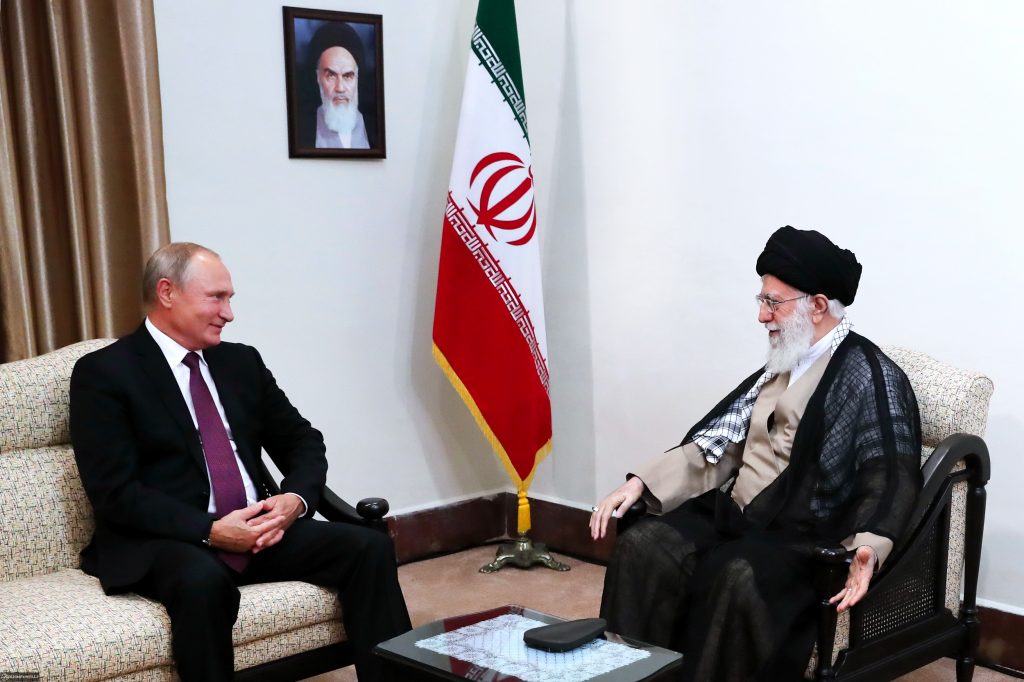FRESH AIR
Iran’s material support for Russia’s invasion of Ukraine must have consequences
July 14, 2022 | Oved Lobel

Since April, open-source intelligence accounts on Twitter have been tracking dozens of Iranian cargo flights to Russia linked to the Islamic Revolutionary Guard Corps (IRGC), recording over 20 such flights as of late May.
We now likely know the purpose of this substantial airlift. On July 11, US National Security Advisor Jake Sullivan announced, “Our information indicates that the Iranian government is preparing to provide Russia up to several hundred UAVs [unmanned aerial vehicles], including weapons-capable UAVs, on an expedited timeline,” with the IRGC to train the Russians on these systems. This is somewhat ironic, as many had assumed the arms transfers would be in the other direction.
Previous unverified reports have indicated IRGC aid to Russia, both in terms of weapons and components as well as personnel, including rumours of a Hezbollah contingent that the group denied. Regardless of whether any of these reports were even vaguely true, it is quite clear that the IRGC is deeply involved in the invasion of Ukraine and that these cargo flights are carrying something.
The strategic alliance between Russia and Iran is nothing new, although the fact that Russia needs to rely on Iran is yet further evidence, as if any more were needed, that Russia is not a real military power. However, such a serious escalation of Iranian support for Russia’s invasion must have consequences, both for the zombie talks to revive the Joint Comprehensive Plan of Action (JCPOA) nuclear deal as well as broader engagement with Iran.
In the first case, far more severe sanctions must be imposed by Europe and the US on Iran as soon as any Iranian drones appear in Ukraine. Any fears this would derail JCPOA talks are misplaced: Iran has made clear in word and deed from Supreme Leader Ali Khamenei on down for over a year that it is not remotely interested in coming back into compliance with the JCPOA and is instead barrelling towards the nuclear threshold and has perhaps already crossed it.
The parallels with Pakistan’s nuclear weapons program, which led directly to the Iranian one, are striking, and Iran, like Pakistan before it, may already have a nuclear device while the world engages in a charade to avoid taking any action. Regardless, it is quite clear that all negotiations on the subject are fruitless, as over a year of dead-end engagement has demonstrated.
This is on top of the fact that, despite US obfuscation on the issue, International Atomic Energy Agency (IAEA) Director-General Rafael Grossi stated over a year ago that a linear return to the JCPOA was impossible due to Iranian nuclear advances. Iran’s ‘breakout’ time is now estimated to be zero, with some sources suggesting it has enough enriched uranium for at least three nuclear weapons should it choose to build them. Iran’s rapid advances towards an intercontinental ballistic missile under the guise of a parallel space program run by the IRGC indicate that it is working to perfect both its enrichment processes and its missile technology simultaneously so it can immediately field a nuclear warhead on a missile if and when it chooses to do so.
It is quite possible Russia will eventually seek to acquire ballistic and cruise missiles or components from Iran as well, as its own land-attack missiles are entirely unreliable and its stockpile severely depleted, forcing it to rely heavily on anti-ship and surface-to-air missiles to attempt to strike land targets.
Both the Europeans and the US must make clear to Iran that any material aid to Russia’s invasion will have severe economic and diplomatic consequences. This is not only necessary to deter or at least punish any substantial Iranian weapons transfers to Russia, but also to head off the potential for the IRGC eventually establishing an operational military presence near US and allied forces in Europe in Russian-occupied territory or Russian client states like Belarus.
RELATED ARTICLES

Enormous hope that Iran is being liberated: Colin Rubenstein on Sky News

He survived Bondi. Now he’s fighting back: Arsen Ostrovsky addresses AIPAC conference





















